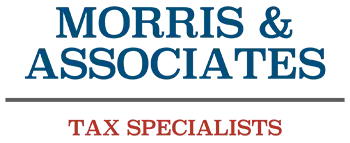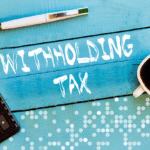In difficult times, many Americans find themselves struggling to make ends meet. When you are behind on your taxes, the IRS can be a daunting and frightening organization. You may feel like you have no other choice but to file for bankruptcy in order to force the IRS to agree to a payment plan.
In case you are behind on your taxes, the first thing you should do is contact a tax professional. They can help you determine if bankruptcy is the right option for you. If it is, they can also help you navigate the process and ensure that all of your paperwork is in order.
Filing for bankruptcy can be a way to force the IRS into accepting a payment plan. When you file for bankruptcy, the court will appoint a trustee to manage your case.
That trustee will work with the IRS to come up with a payment plan that you can afford. In most cases, the IRS will be more likely to accept a payment plan if you are already in the process of filing for bankruptcy.
What Is Bankruptcy?
Bankruptcy is a legal process that allows individuals or businesses to reorganize their finances and get relief from debts that they are unable to pay. When you file for bankruptcy, an automatic stay goes into effect. This means that creditors are prohibited from taking any action to collect on the debt, including wage garnishment, foreclosure, and repossession.
Types of Bankruptcy
There are two types of bankruptcy that individuals can file: Chapter 13 and Chapter 7. In a Chapter 13 bankruptcy, the debtor creates a repayment plan to pay back their creditors over a three- to five-year period. In a Chapter 7 bankruptcy, the debtor’s assets are sold off to repay creditors.
Which One Should I File For?
The type of bankruptcy that you should file for depends on a number of factors, including your income, debts, and assets. A tax professional can help you determine which type of bankruptcy is right for you.
Filing for bankruptcy is a serious decision that should not be taken lightly. However, if you are struggling to make ends meet and the IRS is threatening to take action against you, it may be the best option for you.
A tax professional can help you determine if bankruptcy is right for you and guide you through the process.
What Happens When You Declare Bankruptcy?
When you file for bankruptcy, an automatic stay goes into effect. This means that creditors are prohibited from taking any action to collect on the debt, including wage garnishment, foreclosure, and repossession.
While the automatic stay is in effect, you and your creditors will develop a repayment plan. This plan will detail how much you will pay each month and how long the repayment period will last. Once the repayment period is over, any remaining debt will be discharged.
Filing for bankruptcy is a serious decision that should not be taken lightly. However, if you are struggling to make ends meet and the IRS is threatening to take action against you, it may be the best option for you.
A tax professional can help you determine if bankruptcy is right for you and guide you through the process.
Don’t let the IRS bully you into a payment plan that you can’t afford. If bankruptcy is the right option for you, a tax professional can help you navigate the process and get the relief you need.
How Bankruptcy Stops the IRS
Again, when you file for bankruptcy, an automatic stay goes into effect. This means that creditors are prohibited from taking any action to collect on the debt, including wage garnishment, foreclosure, and repossession.
The automatic stay will stop the IRS from taking any collection action against you while your bankruptcy case is pending. This includes wage garnishment, bank levies, and seizure of assets. The stay will also give you time to develop a repayment plan with the IRS.
The Risks Associated with Bankruptcy
While bankruptcy can be a way to get relief from your debt, it is not without its risks. When you file for bankruptcy, your credit score will take a hit. This can make it difficult to get approved for loans in the future.
Bankruptcy also stays on your credit report for seven to ten years. This means that creditors will see that you have filed for bankruptcy when they pull your credit report.
Another risk to consider is asset forfeiture. In a Chapter 13 bankruptcy, the court may require you to surrender some of your assets to repay your creditors. This includes things like your home or car.
Discharging Your Taxes Through Bankruptcy
One of the benefits of bankruptcy is that it can discharge some types of debt. This includes things like credit card debt and medical bills.
In a Chapter 13 bankruptcy, you may also be able to discharge your taxes. To do this, you must meet certain requirements, including:
- You must have filed your tax return for the year in question
- The taxes must be for a return that was due at least three years before you filed for bankruptcy
- You must not have committed tax fraud or evasion
- You must be up to date on your tax filings for the past two years
When you meet these requirements, you may be able to discharge your taxes through bankruptcy. This can provide you with some much-needed relief from your tax debt.
What Could Happen If You Don’t Follow Through with The Payment Plan?
If you don’t make the payments required by your repayment plan, the court may dismiss your bankruptcy case. This means that your creditors will be able to take action against you to collect on your debt. The automatic stay will be lifted, and they can resume wage garnishment, foreclosure, and repossession.
You may also be held in contempt of court. This could result in fines or even jail time.
Consult a Tax Professional Today
Bankruptcy is a serious decision that should not be taken lightly. If you are considering bankruptcy, it is important to consult with a tax professional. They can help you determine if bankruptcy is right for you and guide you through the process.
At Morris and Associates, we can help you with all of your tax needs, including bankruptcy. Contact us today to schedule a consultation. We can help you get the relief you need.







